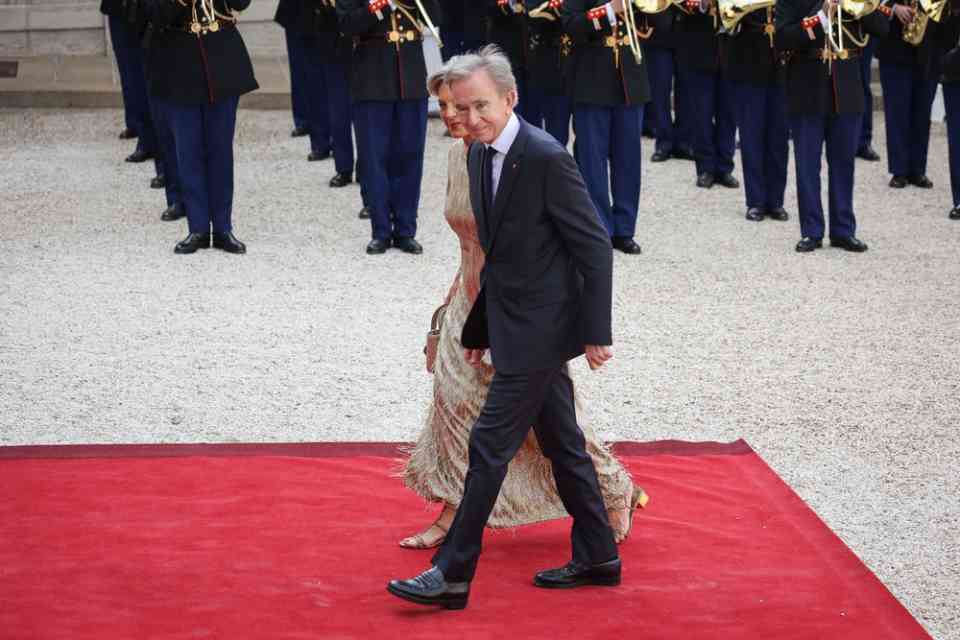Bernard Arnault’s Wealth Decline by 54 Billion: Where Will He Be on The Richest List Now?

Bernard Arnault, once the wealthiest person in the world just six months ago, is now slipping towards fifth place in global rankings. As the founder and CEO of LVMH Moët Hennessy Louis Vuitton, the French luxury conglomerate, Arnault was valued at an estimated $231 billion in late March, putting him ahead of tech giants Elon Musk and Jeff Bezos on the Billionaires Index.
However, since then, Arnault’s fortune has taken a significant hit, dropping by $54 billion to $177 billion as of Wednesday. This places him in fourth place, narrowly ahead of Oracle co-founder Larry Ellison by just $1 billion.
So far in 2024, Arnault’s net worth has plummeted by $30 billion, making him the biggest loser in terms of personal wealth this year. Unlike the other 17 richest individuals, who have all seen their fortunes grow by at least $14 billion—and in some cases as much as $63 billion—Arnault is the only one to experience a net loss.
Having started the year with a net worth of $233 billion in March, Arnault has now fallen to fifth place, with a fortune of $175 billion, ranking behind Musk, Bezos, Ellison, and Meta CEO Mark Zuckerberg.
The sharp decline in Arnault’s wealth mirrors a 16% drop in LVMH’s stock, which has hit its lowest point in two years. Arnault controls nearly half of the luxury giant, which owns about 75 prestigious brands, including Louis Vuitton, Tiffany & Co., Dom Perignon, and Sephora.
LVMH has faced significant challenges this year. Its underlying revenues inched up by only 2%, while income from recurring operations fell 8% during the first half of the year. The company also saw sharp declines in specific sectors: a 26% drop in profits from wines and spirits, 19% in watches and jewelry, and 6% in its core fashion and leather goods division.
Amid these difficulties, Arnault acknowledged a “climate of economic and geopolitical uncertainty” in LVMH’s earnings report. Additionally, Sephora, one of the company’s flagship brands, announced it was cutting 10% of its 4,000-person workforce in China due to a tough local market.
While the luxury industry experienced a post-pandemic boom, fueled by the return of global travel and pent-up consumer demand, it has recently struggled under the weight of historical inflation, rising interest rates, and concerns of an economic recession, even among its affluent customer base.
Have you read?
Best CEOs.
Best Companies.
Richest People (Billionaire).
Richest Women (Billionaire).
Richest in Each Country (Billionaire).
Bring the best of the CEOWORLD magazine's global journalism to audiences in the United States and around the world. - Add CEOWORLD magazine to your Google News feed.
Follow CEOWORLD magazine headlines on: Google News, LinkedIn, Twitter, and Facebook.
Copyright 2025 The CEOWORLD magazine. All rights reserved. This material (and any extract from it) must not be copied, redistributed or placed on any website, without CEOWORLD magazine' prior written consent. For media queries, please contact: info@ceoworld.biz








